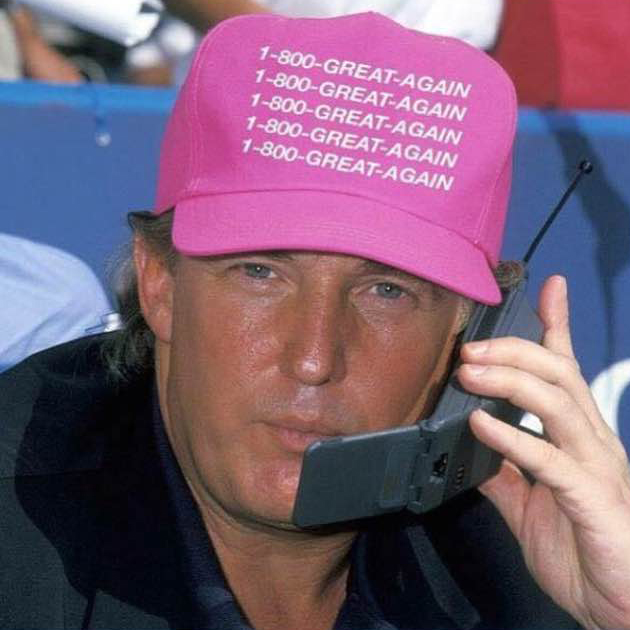
To call the president-elect’s use of twitter bold is an understatement. After all, we are talking about a man who claims to be referred to as the Ernest Hemingway of 140 characters, and who alleges to understand social media better than anyone else. With the presidential inauguration imminent, most political pundits have one thing in common: they have absolutely no idea what to expect.
His cliché-ridden campaign was reminiscent of a high school race for class president. In this film, Donald Trump assumes the role of the inexperienced football player campaigning on lavish promises of Coca-Cola drinking fountains, pizza-parties and longer recess.
His solutions addressing the most complex issues facing the US can often be summarized in three words or less. Immigration? Build a wall. Combatting ISIS? Secret plan. Affordable Care Act? Repeal and replace. Trade? Only good deals.
These short and simple solutions certainly sound appealing to the average American. Not only are they straightforwardly digestible, but they also sound feasible. Yet the seemingly confident Trump has failed to provide any substantial detail pertaining to how he intends to achieve his commitments, leaving the press totally discombobulated.
In addition, concerns over his controversial cabinet picks and the recently released intelligence report linking Trump’s win to the Kremlin, has the public starving for information.
Despite all of this, Trump has abstained from hosting news conferences, having hosted just one in the last six months, because he claims to always be spun “inaccurately” by the dishonest media. In retaliation to this, Trump has sought refuge through Twitter, where he can continue to preach his gospel while circumventing public engagement with his critics.
The problem is quite apparent. No one can adequately discuss the complexities of policy in 140 characters without dangerously oversimplifying them. The lack of context and thoroughness in his ambiguous asseverations are incredibly misleading for readers.
Trump and his crusade against the mainstream media has evolved into an all-out assault against what he calls “fake news.” For this reason, the PEOTUS and his advocates have exploited Twitter as a conduit to opine without the interference of the biased media. There is merit in this argument, however it cannot stand on its own.
Trump fails to acknowledge that “fake news” is an epidemic plaguing both sides of the political spectrum in contemporary journalism. For every Golden Shower dossier published there is a Pizza-Gate story to pair it with. Just because you disagree with some coverage does not justify keeping 327 million Americans in the dark.
Donald Trump is using the fake news hysteria as a Trojan horse for his opacity and lack of policy. His tweets allow him to bolster support for his propositions without providing any evidence.
In addition, by cutting out the media from the equation, Trump is able to evade scrutiny as tweets are shared instantaneously around the world and absorbed as fact before industry verifiers can contribute.
For example, in early November 2016 Trump Tweeted that he was able to sway Ford Motors Chairman William Ford Jr. to keep a manufacturing plant in Kentucky rather than moving to Mexico.
Yet in reality, Ford had neither planned to close the Louisville Kentucky plant nor reduce jobs there. The company was considering moving Lincoln production to Mexico to increase production of the Ford Escape in Louisville.
To this effect, Trump was able to take credit for saving an American manufacturing plant that had no intention of closing to begin with. To a busy working American who does not have the time to fact check every statement, it would appear that Trump’s economic policy was working.
But there are weighty ramifications stemming from Trump’s inability to cooperate with the press. By doing so, he actively pacifies public debate, which subsequently limits the ability of the citizenry to participate in important discussions.
By their very design, the media exists to inform democratic choices through the clarification of complex issues. Journalists can provide politicians a medium to explain their policies to the public to gain support in a way that is mutually beneficial.
In its most mature form, free press enables political pluralism to express itself by advertising contrasting opinions. You cannot supplement the role of this vital institution with one’s own self-aggrandizing Tweets.
Is the President-elect simply ill equipped to debate the press or is he just preoccupied organizing his transition team? I am willing to give him a chance, and hope to see him rectify this behaviour after his transition into his new role.
It appears that Twitter will remain the predominant line of communication for the President-elect, as confirmed by the White House Press Secretary Sean Spicer. I think the majority of Americans are comfortable with that, however it must be accompanied by additional lines of communications.
Ongoing news conferences, press releases, and interviews are prerequisites for transparent communication. Should this opaque behaviour continue after he is inaugurated, I believe anxieties will only be exacerbated while public doubt will continue to disseminate.
